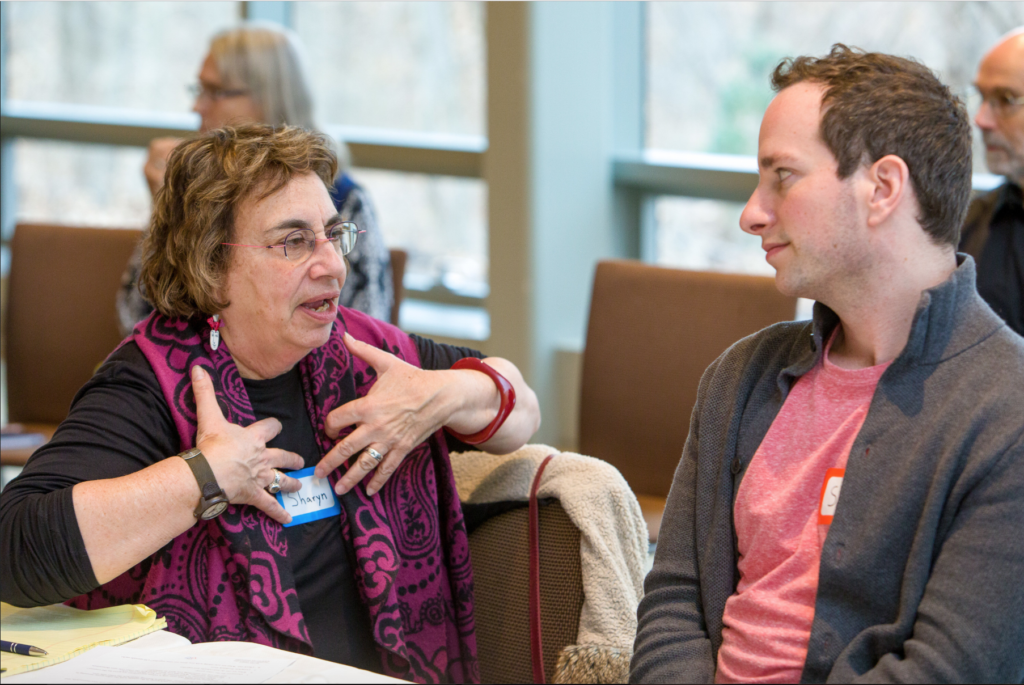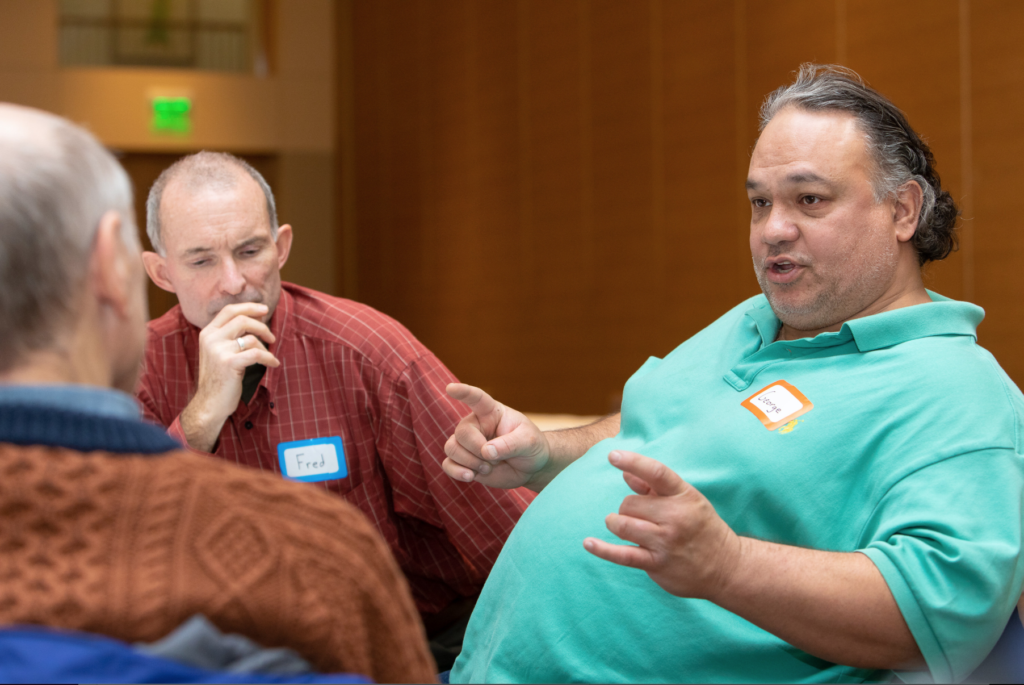Social Media
The Braver Angels Social Media Pledge
W.I.N.G.S.
As a supporter of Braver Angels, I pledge to exemplify the organization’s mission and methods in my interactions with others in the sphere of online social media. By “wearing my WINGS,” I hope to help raise the level of our collective political discourse, and to set an example for others to follow as we navigate these often-difficult conversations.
If you see me interacting online in a way that suggests I’m not wearing my WINGS, I encourage you to point this out to me in a respectful way, perhaps giving me an example of what I might do better next time. If possible, communicate with me directly, and avoid publicly shaming me. Wearing your wings will help us elevate our conversations together.
I pledge to follow these rules in my interactions:

W – Write respectfully, with an openness to the idea that other opinions might be valid.
It’s fine to have strong opinions, but I will express them respectfully. In social media discussions, I will keep an open mind and not degrade or discount others’ points of view. I’ll work to maintain a “learning posture” that acknowledges there may be an angle to the discussion I’m not seeing.
Some examples:
- Avoid pejorative labels (“wingnuts,” “bible thumpers,” “libtards,” “snowflakes”). This is a first step without which the following will be meaningless.
- If you’ve heard or read a thoughtful idea from someone on the other side, share it. (“I read a liberal/conservative commentator who said something interesting about this…”)
I will be sure to read an entire post and comment thread before weighing in, so I understand the context of the conversation I’m entering and people don’t need to repeat prior comments. That’s how we’ll all learn and grow together.
I – Use “I” statements for my own viewpoints, and don’t question or doubt other people’s lived experiences.
Braver Angels members strive to represent their own viewpoints, rather than insisting that their statements speak for a whole group. We also recognize that each person’s lived experience is unique. If someone is telling me that certain statements or posts in the group make them feel a certain way, I’ll take that as presumptively valid.

Some examples:
- Criticize the idea, the policy, or the politician, not everyone on the other side. (Blue example: “Climate change denial is the most ultimately risky idea I’ve seen in my lifetime.” versus “Climate change deniers are either stupid or self-serving or both.” Or red example: “Climate science is uncertain enough that I don’t think we should start overhauling our way of life.” versus “Climate scientists have a liberal agenda to over-regulate the economy and tax us to death.”)
- Check your use of “they all” when referring to the other side. It’s the classic stereotyping phrase.

N – No gotchas; assume good faith.
People join Braver Angels because they want to have honest, open discussions about our political divide. I will engage with others’ best arguments, not just their weakest or most extreme. If someone posts something that seems ignorant or combative (or downright offensive), I’ll take a deep breath, assume that person meant well and has expressed themselves inartfully and a) work to engage them respectfully, or b) ignore it and move on.
Some examples:
- Try an “eavesdropper” thought experiment. How would a rational and well-intentioned member of the other group feel when listening to you describe their side?
- Respected (even if strongly disagreed with) versus disrespected?
- Understood (at least partially) versus grossly misrepresented?
- Criticize your own side too. (“We are losing that group because we haven’t listened to them very well.” “Sometimes our leaders talk as if they have the answer to…[a complex problem], and I don’t think they do.”)
If I feel a post has truly crossed the line, I’ll contact a group administrator or flag the comment for review by a representative of the media platform. I won’t publicly question the person’s motives or whether they should be in a group, etc.
G – Get to common ground to keep the conversation going.
I will always welcome opportunities for respectful engagement with those who hold different views. When I disagree with someone, I’ll strive to do so accurately—avoiding exaggerated disagreement—and to recognize common ground. I recognize that even when my name is on my profile, it’s easy to don the mask that social media provides and get carried away with casting my fellow citizens as “others” and overemphasize our differences.

Some examples:
- The goal is accurate disagreement, where you actually understand how they see the situation or the policy before you disagree or pose your alternative. (“I think we can agree to disagree on this point, but overall it seems we agree on…”)
- If you go on a tear about a particular politician, hold back from putting all supporters into the same box. (“I’m talking about [so and so], and not everyone who voted for him/her.”)

S – Sarcasm doesn’t translate on social media.
I won’t use it when engaging in an open, honest discussion. Enough said.
Take the Braver Angels “Social Media Pledge” yourself!
If you’d like to join me in this pledge, I would love your support! You can follow these steps to do so:
- Post the Social Media Pledge to your profile by clicking one of the share buttons below:
- Stay informed by subscribing to Braver Angels updates
